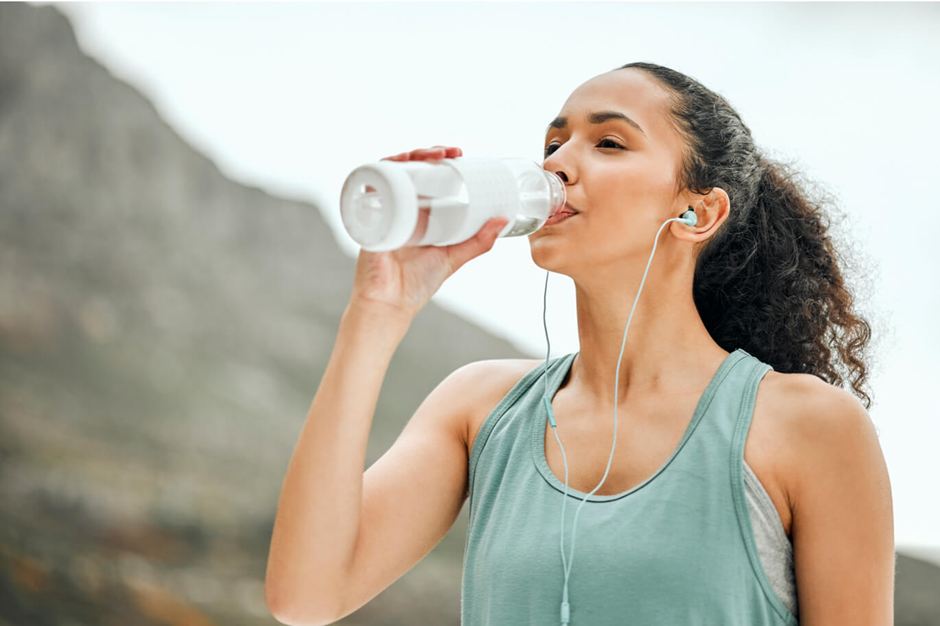
Eat right for good sight
We all recognise that a healthy, balanced diet can benefit our general health and aid in weight loss. However, a healthy diet can also improve your eye health and reduce your risk of developing common eye conditions.
You can find eye friendly vitamins and nutrients in many fruits and vegetables, including spinach, red peppers, kale, leeks, avocado, peaches and blueberries. These can also help to protect against AMD, a condition that affects the vision of more than 600,000 people in the UK and is the leading cause of blindness in the western world.
Cold water fish such as sardines, mackerel and tuna are also great for your eye health. These are all excellent sources of DHA and Omega-3 fatty acids, which support the cells in your eyes. These fish also help to prevent dry eye, treat macular degeneration and preserve your eyesight. Recent research has shown how eating fish just once a week can reduce your risk of developing early AMD by up to 40 per cent.

Watch your weight
As well as improving your general health, maintaining a healthy weight can also benefit your eyes. If you’re a healthy weight, this can prevent the cells in your retina from breaking down and prevent AMD. Studies in the US have shown how people with a higher BMI have a greater risk of developing AMD.
Higher BMI’s can also affect the blood vessels in your eyes, which is linked to developing glaucoma and diabetes.
Drink plenty of water
Another simple way you can improve your eye health is by keeping hydrated. The human body is made up of 70 per cent water. Keeping hydrated not only benefits your general health, but also your eyes.
If you’re dehydrated, this can lead to dry eyes. The Food Standards Agency recommends that you drink around 1.2 litres (6-8 glasses) of water every day, then more when you exercise and in hot weather.

Exercise regularly
As well as water and nutrition, oxygen also helps to keep your eyes healthy and comfortable. Growing scientific evidence suggests that aerobic exercise can increase oxygen to your optic nerve and lower pressure in the eye.
Lowering your eye pressure can help to control conditions like glaucoma and ocular hypertension. Aerobic exercise can also prevent of diabetes, which in severe cases can lead to diabetic retinopathy which affects your eyes.
To gain any health benefit from exercise, the Department of Health recommends doing 30 minutes exercise five days a week. Brisk walks, cycling and swimming are all great ways to lower pressure in your eyes.
Best sunglasses for sport

Don’t smoke
As well as affecting your lungs and general health, smoking can also harm your eyes. Smokers have a significantly higher risk of eye disease than non-smokers. According to research published by the RNIB, smokers are twice as likely to lose their sight in later life than non-smokers.
Tobacco chemicals can damage the blood vessels behind your eyes and increase your risk of developing age-related macular degeneration (AMD). However, the good news is that if you quit smoking your risk of developing AMD begins to decline.
Smoking is also associated with other eye diseases including cataracts.

Limit your alcohol intake
As well as tobacco, alcohol can also affect your eye health. Drinking too much alcohol can interfere with how much glutathione your liver produces. This antioxidant helps protect your eyes from common eye diseases.
The Department of Health advises that men should not drink more than three to four units of alcohol per day, and women should drink no more than two to three units of alcohol per day.

Get a good night’s sleep
Getting your 8 hours every night can keep your mind, body and eyes feeling refreshed. A lack of sleep and fatigue can lead to your eyes becoming sore, irritated, puffy, red and bloodshot.
A quick fix for relieving your eyes from any discomfort caused by lack of sleep is to place a cold compress – wet tea bags, slices of cucumber or a cold wet facecloth – over your eyes, then lie back and relax for ten minutes.

Protect your eyes against UV light
Whether you’re out exercising or socialising, you should try to limit your eyes’ exposure to UV rays.
Excessive exposure can lead to a sunburn-like condition called photokeratitis. This can painful condition causes your cornea to become inflamed and can make your eyes red, swollen and watery. This can happen after 6 – 12 hours sun exposure, however it usually clears up quickly and is only temporary.
However, UV rays can also affect your eye health over the long-term. It can cause cataracts and other age-related eye conditions.
The best way to protect your eyes from UV rays is by wearing sunglasses. By the age of 18, more than half-a-lifetime’s worth of UV light will have been absorbed by a child’s eyes, so it’s never too early to start protecting your eyes. You should make sure that you and your child’s sunglasses filter at least 99 per cent of UVA and UVB light. You should also look out for the CE or BS EN 1836:1997 marks when choosing your sunglasses. All our sunglasses offer 100% UV protection.
Have regular eye examinations
One of the best ways to stay on top of your eye health is to have regular eye tests. This way, our opticians can spot any potential issues early and give you advice on keeping your eyes healthy.
It is recommended that you have an eye examination once every two years. As well as detecting problems with your vision, an eye test can also uncover other underlying health problems.
Book an eye test Find your nearest opticians








